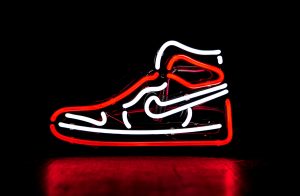Step Up or Step Back: Brands Taking a Stand in 2020
Published on October 22, 2020, at 4:31 p.m.
by Katey Quinn.
There used to be one red line that most brands would not cross: politics. Over time, as more forward-thinking companies evolved their brand identities to correspond with the changing times and sentiments of their consumers, the line in the sand has moved. What used to seem incredibly risky is now the norm, and taking a political stand is on the table. While 2020 has been full of setbacks, nothing has seemed to take center stage more in the brand world than social-justice issues. With the #BlackLivesMatter movement gaining vast momentum since May, many brands have uncharacteristically stepped forward to take a stance against systemic injustices for the first time.
A topic that once seemed to represent an uncertain zone that most brands dared not enter has become embraced as part of essential, everyday communications. Social-justice issues have found their place in most brands’ strategies and tactics, marking a new era of the politicization of brands.
Consumers want to invest in brands that stand for something. Seventy percent of consumers report that they “want to know what the brands they support are doing to address social and environmental issues.” For a brand to be successful in 2020, it must voice what it truly believes in to reckon with this new demographic of activist-minded consumers.
The ones that led the way
The bold brands that took the first initial blind leap toward taking a stance on social issues paved the way for the success of this current social movement. While voicing support on controversial issues is finally being viewed as acceptable brand behavior, the communication industry at large has not always been on board.
Nike was one of the first to politicize its brand image successfully. Its “Dream Crazy” campaign was widely praised and garnered copious awards, but not at first. It dared to leverage Colin Kaepernick as its campaign protagonist — though the mainstream public saw him as highly contentious. The quarterback for the San Francisco 49ers was the first in 2016 to take his iconic kneel during the national anthem. Afterward, he stated that he would not stand up to honor a flag that has oppressed people of color. He was loudly booed and lambasted in media headlines, getting the attention of outspoken critics like President Donald Trump who called for him to be “fired.”

While no brand was initially behind Kaepernick’s kneel, Nike risked it all to take a stand alongside him — leading to the brand’s award-winning campaign “Dream Crazy” in early 2019. Even some longtime devotees of Nike reacted by physically burning their shoes. But that was the point. The campaign’s success relied on the controversy. “Believe in something, even if it means sacrificing everything” was its slogan. Nike was confident that it understood its core target and was razor-focused on its brand purpose.
Now, what initially raised eyebrows and seemed extreme is viewed as heroic and brave. Many of these social justice pioneers like Nike, by taking a political stance against injustices that they believed in, have laid the foundation for other brands like the NBA to have #BlackLivesMatter messages on players’ jerseys and have it be inspiring.
Brands who do not know what they stand for will be lost in the 2020 shuffle
It seems as if 50 years’ worth of news and events have been crammed into the last year. Campaigns that were planned had to be scrapped as the pandemic raged. Brands were left to strategize what they could do to maintain newsworthiness in appropriate ways.
With a media cycle subjugated to COVID-19, #BlackLivesMatter and the most heated election in decades, brands have had to rapidly integrate these current events into their brand psyches, missions, values and communications — both internally and externally.
Brands that received backlash must undergo massive internal change to come back
Brands did one of three things this year: listened and responded, remained silent, or responded instantly. None without backlash — but some more than others. Most consumers are now observing brand behavior closely, taking cues, and evaluating their actions, support and transparency across this tumultuous year. The brands that acted quickly but insincerely were called out almost instantly. Brands that took thoughtful, action-oriented steps and educated themselves before responding were the ones that made the most impact.

Cancel culture is a real trend. Brands that received mass backlash prior to these times used to be able to come back through traditional crisis communications methods. Now brands are being forced to take a hard look internally and make progressive and decisive changes to move forward. However, their actions must be authentic.
The San Francisco 49ers made a statement back in June posting the simple black tile on #BlackoutTuesday. But just four years ago, this same team stood against Kaepernick. This is an example of a brand contradicting its past behavior.
Whether or not you agree with brands and companies taking political or controversial stances, it is quite powerful to watch from a public relations standpoint. This movement is only in its infancy, and it is bound to continue to alter the PR consulting landscape at a dramatic pace. The brands and companies that most authentically come face to face with their true purpose and values in 2020 through all the discord will prevail.




